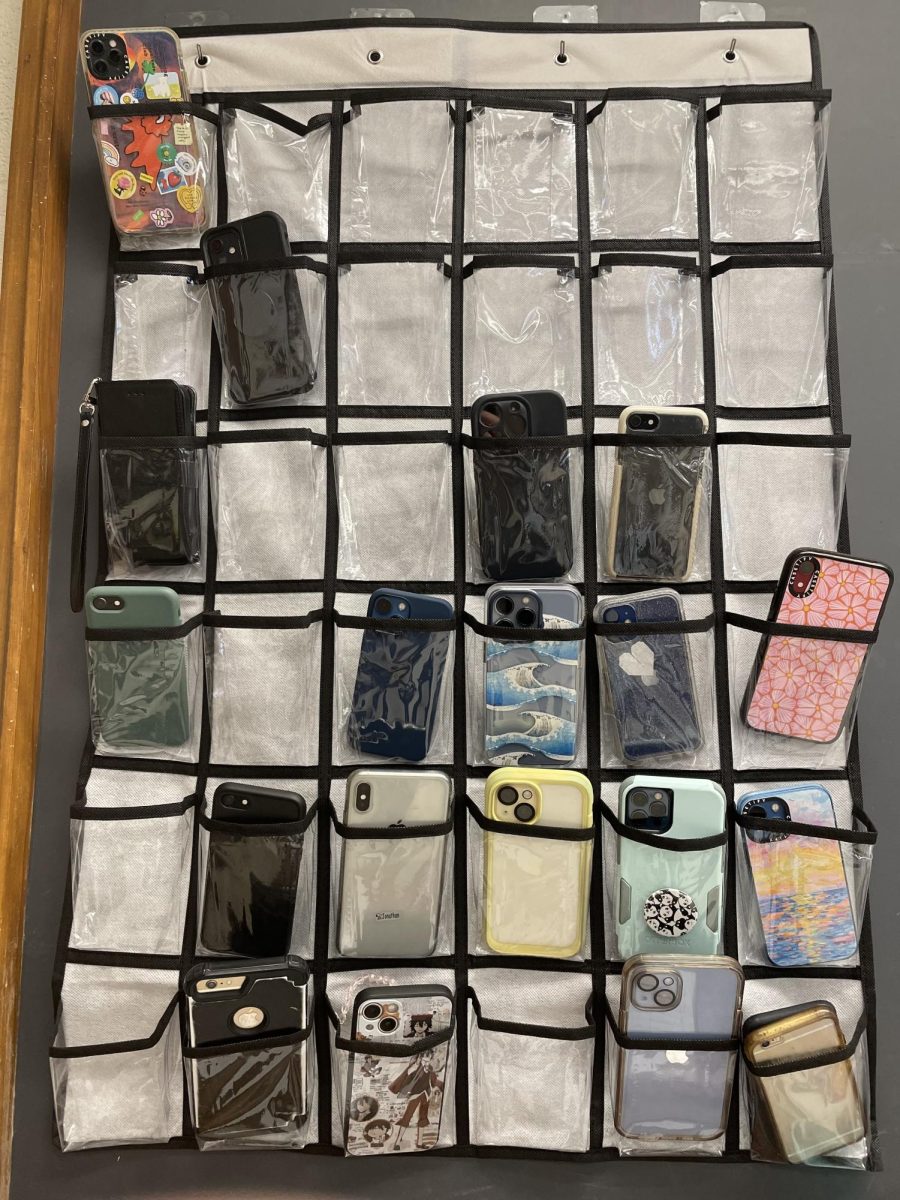Cell phones have become every student’s best friend. As technology and social media have rapidly advanced, students and their personal devices have become inseparable.
To combat distractions in the academic environment, faculty members at Lexington High School have unleashed a powerful weapon to mitigate the effects of digital distraction: phone pockets.
“One of the things that was really surprising to me is there are multiple studies that were talking about how your level of distraction actually doesn’t reduce by just flipping your phone over or even by you leaving it in your pocket,” Christopher Brunner, a math teacher, said.
The constant stream of notifications on teenagers’ phones can make it difficult to focus on real-world tasks. In classrooms especially, students may spend more time scrolling on their cell phones than talking to a peer sitting right across from them. Moving away from devices encourages face-to-face interaction.
“The way that students socialize with each other is very important to me… I want to be able to have students communicate with each other using mathematics,” Brunner said.
Rohen Sundaram, a health teacher, also shared the social benefits that the phone pocket policy has had on his classes.
“It’s a very stark contrast to see when students have access to their phones during an educational period versus when they don’t have access to their phones. Because even when there was a moment of downtime, everyone just would have taken out their phone and been doing whatever on their phone, versus conversation; like natural conversation comes out between students,” Sundaram said.
Without phones preventing interpersonal connection, students can really thrive. Getting to know your peers encourages students to engage with the class and contributes to a more positive learning environment.
Ezra Rudenko, a senior, believes school-wide input could have positive effects on future policies at LHS.
“I think if [the phone pocket] was really proposed as this big change… I feel like people [should] have approached the whole thing differently. I feel like having that community aspect and having told us a little sooner would have benefited it on a community level,” Rudenko said.
Now that the phone pocket policy has been put into effect, it is up to the school community to normalize it. Open discussions between teachers and students are key to developing a healthy relationship with devices in the classroom. Phone pockets have proven benefits in the school environment, but it is up to each class community to shape the policy to best fit them.
Phone pockets, although controversial, are ultimately a way for us to disconnect from the digital world and reconnect with the classroom. After the isolating effects of remote learning, it’s time for us to get back into face-to-face conversations. Phone pockets may be the first step LHS has taken in this direction, but it’s definitely not the last. This new policy should inspire students to re-engage with LHS and start providing their own ways to improve our school community.


